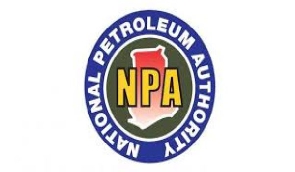On October 3, 2005, the Chairman of the Governing Board of NPA, Professor Ivan Addae Mensah, at a press conference in Accra, announced an increment in ex-pump petroleum products. A gallon of petrol was increased from 30,500 cedis now GHC3.50 to 32,000 cedis now GHC3.20 in the new currency, contributing to 4.9 percent increment.
The new directive also affected the price of gas-oil from an initial amount of 27,300 cedis now GHC2.73 to 29,100 cedis now GHC2.91 seeing 6.6% increment.
The price of premix fuel dropped from 20,000 cedis now 2.00gh also accounting a decrease of 4.8 per cent. Kerosene and LPG however maintained their price of 22,000 cedis now GHC2.20 and 75,000 cedis now GHC7.50 respectively.
According to Professor Ivan Addae Mensah, the rising cost of crude oil prices on the world market, coupled with the increasing rate of consumption in China and India as well as development at home led the National Petroluem Authority (NPA) to increase petroleum prices.
On February 7, 2018, some drivers in Accra together with the Commercial Workers Union (ICU) embarked on a protest led by COPEC to demand a reduction in fuel prices.
After fourteen years, the price of petrol has escalated to GHC5.39 per liter representing a 3.7% increment from the previous amount of GHC5.19 in 2019.
Once again, the Chamber of Petroleum Consumers (COPEC) attributed the recent fuel hike to the increase in some components of the energy sector levies.
In Ghana, any increment in fuel prices has the tendency of affecting the prices of goods and services leading to high cost of living. The recent increment received several calls from individuals for a reduction in fuel prices.
On September 16, 2019, the Ghana Private Road Transport Union (GPRTU), announced the 10% increment in public transport fares. According to the National Chairman of GPRTU, Kwame Kuma, the decision was taken in other to accommodate the predominantly increase in fuel prices.
Read the full story originally published on October 3, 2005, on Ghanaweb
The National Petroleum Authority on Monday announced new ex-pump prices of petroleum products, fixing the price of a gallon of petrol at 32,000 cedis, representing an increase of 4.9 per cent over the previous price of 30,500 cedis.
Similarly, the price of Gas-oil, which currently sells for 27,300.00 cedis, has also been reviewed upwards to 29,100 cedis, a rise of 6.6 per cent.
However, the price of premix fuel had been reduced to 20,000 cedis, a decrease of 4.8 per cent on the former price of 20,999.97 cedis. The ex-pump prices of kerosene and LPG remain unchanged at 22,000 cedis and 75,000 cedis respectively.
Chairman of the Governing Board of the Authority, Professor Ivan Addae Mensah, who announced the new prices at a press conference, said the changes took immediate effect.
He said the Authority arrived at the new ex-pump prices after careful considerations, especially the rising cost of crude oil prices on the world market, the increasing rate of consumption in China and India as well as development at home.
Oil prices have risen sharply from about 60 dollars per barrel in August to about 70 dollars influenced by the devastating hurricanes Katrina and Rita that hit the US Gulf Coast.
Explaining further, Mr Addae-Mensah said even though the Tema Oil refinery had shown increased level of efficiency, the country had to import a little more refined products than otherwise would have been necessary due to routine maintenance operations at TOR. However, he said, the lower cost of the refined products and the stable exchange rate of the cedi had helped to reduce the impact of the hike in the international crude oil prices on the domestic price increases.
He said calculations within the period had shown that Premium and Gas oil went up by 9.3 per cent and 9.2 per cent respectively, while that of Pre-mix fuel came down by 6.7 per cent. Mr Addae-Mensah said the Authority would continue the regular review of market prices to ensure that price developments in the local market were orderly to avoid past situations where big price changes had dislocated economic activities.
In February this year, government announced a 50 per cent increase in all petroleum products, arguing that the new prices would enable it to remove the payment of subsidies, recover cost and channel resources from the sale of refined crude oil products to other sectors including education. There were also mild increases in the ex-refinery price in August this year.
General News of Thursday, 3 October 2019
Source: www.ghanaweb.com













